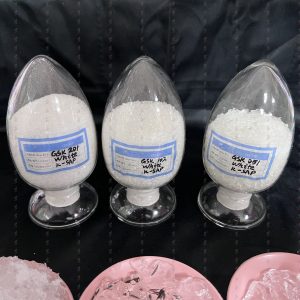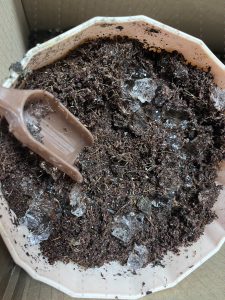Superabsorbent polymers (SAPs) have revolutionized numerous industries, offering unparalleled water-absorbing capabilities. From personal care products to agriculture, SAPs play a crucial role. This document aims to shed light on the safety considerations surrounding superabsorbent polymers.

Understanding Superabsorbent Polymers:
Superabsorbent polymers are a type of hydrogel with exceptional water-absorbing properties. These materials can absorb and retain large amounts of liquid relative to their own mass, making them invaluable in applications like diapers, sanitary products, and soil conditioning.
Safety in Personal Care Products:
SAPs are commonly used in personal care products, including diapers and feminine hygiene items. Rigorous testing is conducted to ensure the safety of these materials for extended contact with the skin. Reputable manufacturers adhere to strict quality control standards, and the majority of SAPs used in personal care products are considered safe and non-toxic.
Agricultural Applications:

In agriculture, SAPs are employed to enhance water retention in soil, particularly in arid regions. Numerous studies indicate that when used responsibly, SAPs can contribute to water conservation and increased crop yields without posing harm to the environment or human health.
Environmental Impact:
Concerns about the environmental impact of SAPs have prompted research into biodegradable alternatives. While traditional SAPs are not readily biodegradable, ongoing efforts focus on developing eco-friendly options to mitigate potential long-term environmental effects.
Toxicity and Regulation:
Regulatory bodies worldwide set stringent standards for the use of SAPs in various applications. Comprehensive toxicity testing ensures that these materials meet safety requirements. It’s crucial for manufacturers to comply with these regulations, assuring consumers that SAP-containing products are safe for use.
Proper Handling and Disposal:
Ensuring the safety of superabsorbent polymers also involves proper handling and disposal practices. Users should follow recommended guidelines for product application, especially in agriculture, and adhere to disposal instructions to minimize any potential impact on the environment.
Conclusion:
In summary, superabsorbent polymers, when used responsibly and in accordance with established guidelines, are generally considered safe. Continuous research and development efforts aim to improve the safety and environmental impact of these materials, providing consumers with reliable and sustainable solutions. Staying informed about product specifications, adhering to recommended practices, and supporting eco-friendly alternatives contribute to the responsible use of superabsorbent polymers across various industries.

